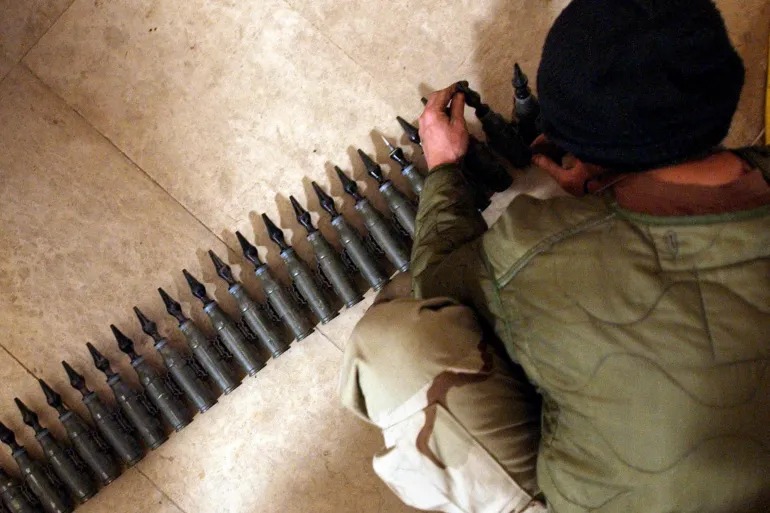In a move that has drawn sharp criticism from Russia, the United States has announced its plan to include depleted uranium ammunition in a new $1 billion assistance package for Ukraine. This decision, seen by Russia as an act of inhumanity, raises concerns about the use of these controversial munitions on the battlefield. Amid escalating tensions in the region, the provision of depleted uranium shells has become a contentious issue, sparking a debate over their potential health hazards and the implications for the ongoing conflict between Ukraine and Russia.
Controversial Arms in the Aid Package
The Pentagon revealed on Wednesday that the assistance package for Ukraine, valued at over $1 billion, will encompass a wide range of support, including depleted uranium ammunition designed for US-made Abrams tanks. This allocation forms part of a $175 million military package, as announced by US Secretary of State Antony Blinken during his visit to Kyiv. The intention to supply weapons containing depleted uranium, however, has ignited strong condemnation from Russia, expressed through its embassy in Washington.
Describing the decision as an indicator of inhumanity, Russia’s embassy issued a statement on the Telegram messaging app, suggesting that the US was ready to fight not only to the last Ukrainian but also willing to affect entire generations. The embassy asserted that the transfer of weapons with indiscriminate effects could result in the formation of a radioactive cloud, with small uranium particles posing grave health risks, including cancer and organ dysfunction.
Debate Over the Use of Depleted Uranium Shells
The controversy surrounding the supply of depleted uranium shells is not a new one. While the use of such munitions is not banned under international law, it has been fiercely debated. Opponents, including the International Coalition to Ban Uranium Weapons, argue that there are significant health risks associated with ingesting or inhaling depleted uranium dust, including cancers and birth defects.
Depleted uranium is known for its extreme density and hardness, making it capable of piercing armor plating and self-igniting upon impact. Despite assurances from the US National Security Council that the ammunition is not radioactive and does not approach the realm of nuclear weaponry, concerns persist about the potential long-term consequences of its use in warfare.
US Assures Non-Radioactive Nature, While Russia Warns of Escalation
The debate over the deployment of depleted uranium munitions has further strained relations between Russia and the West. Earlier this year, the United Kingdom sent similar ammunition to Ukraine, prompting warnings from Russian President Vladimir Putin about potential responses and accusations of deploying weapons with a “nuclear component.”
In response to the UK’s action, Putin announced plans to station tactical nuclear weapons in neighboring Belarus, marking the first such deployment outside of Russia since the Soviet Union’s dissolution. This move heightened concerns about a potential escalation of the conflict.
US Secretary of State Antony Blinken, during his visit to Kyiv, emphasized that the latest assistance package aims to bolster Ukraine’s ongoing counteroffensive against Russian forces while enhancing its long-term defense capabilities. He expressed optimism about the progress made in the counteroffensive and reaffirmed the United States’ commitment to supporting Ukraine in the ongoing conflict.
Despite Blinken’s reassurances, the provision of depleted uranium shells remains a contentious issue, symbolizing the deep divisions and heightened tensions in the ongoing Ukraine-Russia conflict. As Ukraine continues to report advances against Russian front lines, the international community watches closely, with concerns about the potential consequences of these controversial arms lingering on the global stage.















